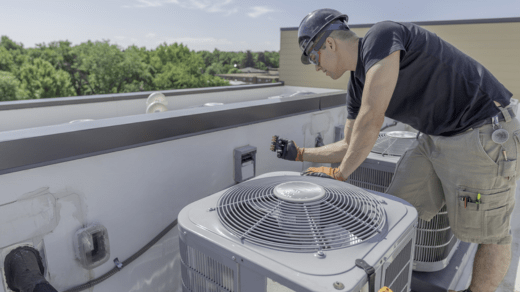Heat Pump Replacement in Columbus: What You Need to Know

As temperatures in Columbus, Ohio, fluctuate throughout the year, heat pumps serve as a reliable solution for both heating and cooling your home. However, like any HVAC system, these have a limited lifespan and will eventually need replacement. Replacing them at the right time ensures continued comfort, energy efficiency, and cost savings. If you’re considering heat pump replacement in Columbus, here’s everything you need to know.
Signs It’s Time to Replace Your Heat Pump
Heat pumps are designed to last between 10 and 15 years with proper maintenance. However, several factors can indicate it’s time for a replacement:
- Frequent Repairs
If you realize you are constantly contacting an HVAC technician for repairs over and over again, then maybe fix costs outweigh the gains of owning an old heat pump. A high number of breakdowns is a good sign that your system is on its last legs.
- Rising Energy Bills
The efficiency of a heat pump drops as time goes on. Sometimes, no amount of maintenance can prevent your heat pump from operating inefficiently, and this can be the reason for the constantly rising energy bills.
- Uneven Heating and Cooling
Traditional heat pumps are well known to exhibit a problem of having fluctuations in temperatures across your home in particular crowded areas. If a heater has failed in some rooms and has not adjusted adequately in others, a replacement might be required to bring back warmth.
- Excessive Noise
Any squealing, grinding or rattling sound from the car’s engine is a sign that it needs some serious work done to it, work that could be very expensive to undertake.
- Age of the System
In case your heat pump is more than fifteen years old, even if it appears to be functioning well, you are better off replacing it with a newer and more efficient version.
Benefits of Replacing Your Heat Pump
Investing in a new heat pump offers several advantages that improve your home’s comfort, efficiency, and value:
- Improved Energy Efficiency
In today’s world, heat pumps are many folds more efficient than the earlier models designed and installed. The simplest way to cut your utility bills is to replace the existing unit with a new one that has a higher SEER (Seasonal Energy Efficiency Ratio) or a higher HSPF (Heating Seasonal Performance Factor). Read this for reference.
- Enhanced Comfort
Modern heat pumps maintain better control of temperature and circulate warm or cool air all over your house.
- Lower Maintenance Costs
No need for constant repair means that the frequency at which you will spend on the new system is relatively low.
- Environmental Benefits
Today’s heat pumps employ environmentally friendly fluids and work more efficiently which in turn will lower your home’s impact on the environment.
- Increased Home Value
A new heat pump can be an attractive feature for potential buyers, should you decide to sell your home in the future.
Choosing the Right Heat Pump
When selecting a replacement heat pump, it’s essential to consider several factors:
- Size: A heat pump that’s too small won’t adequately heat or cool your home, while an oversized unit may cycle on and off too frequently, wasting energy. A professional HVAC technician can perform a load calculation to determine the right size for your home.
- Efficiency Ratings: Look for models with high SEER and HSPF ratings for optimal energy efficiency.
- Type of Heat Pump: Depending on your needs, you can choose from air-source, geothermal, or ductless mini-split pumps.
- Rebates and Incentives: Many energy-efficient models qualify for rebates, tax credits, or utility company incentives, helping offset the cost of installation.

The Installation Process
Replacing a heat pump involves several steps to ensure proper installation and performance:
- Assessment and Removal: The technician will evaluate your existing system and remove the old heat pump.
- Ductwork Inspection: They’ll inspect your home’s ductwork for leaks or damage that could impact the performance of your new system.
- New System Installation: The new one is installed, connected to your ductwork, and tested for proper operation.
- Post-Installation Testing: Technicians perform system checks to ensure the unit operates efficiently and meets manufacturer specifications. Visit this site for more information.
Why Hire a Professional in Columbus
Replacing a heat pump is a complex task that requires specialized knowledge and tools. Hiring a professional HVAC contractor in Columbus ensures:
- Correct Sizing: The system matches your home’s heating and cooling requirements.
- Expert Installation: Proper installation avoids issues like inefficiency or premature wear and tear.
- Warranty Protection: Most manufacturers require professional installation to keep warranties valid.
- Safety: Professionals handle refrigerants and electrical components safely and in compliance with local codes.
Conclusion
Replacing your heat pump in Columbus is an investment that pays off in energy savings, improved comfort, and reduced maintenance costs. If your current system is showing signs of age or inefficiency, don’t wait for a complete breakdown to make the switch. Consult a trusted HVAC professional to assess your home’s needs and recommend the best for your situation. With the right replacement and expert installation, you’ll enjoy year-round comfort and peace of mind for years to come.




